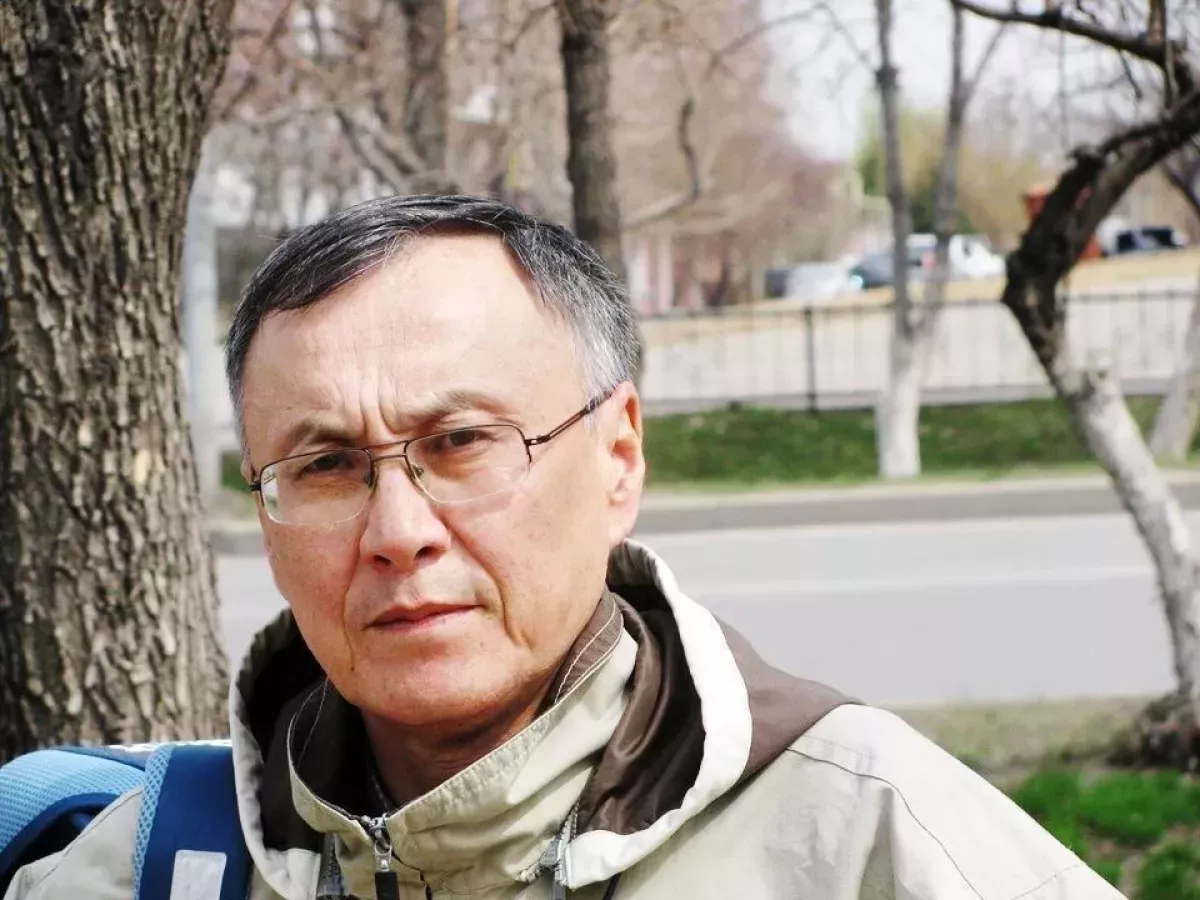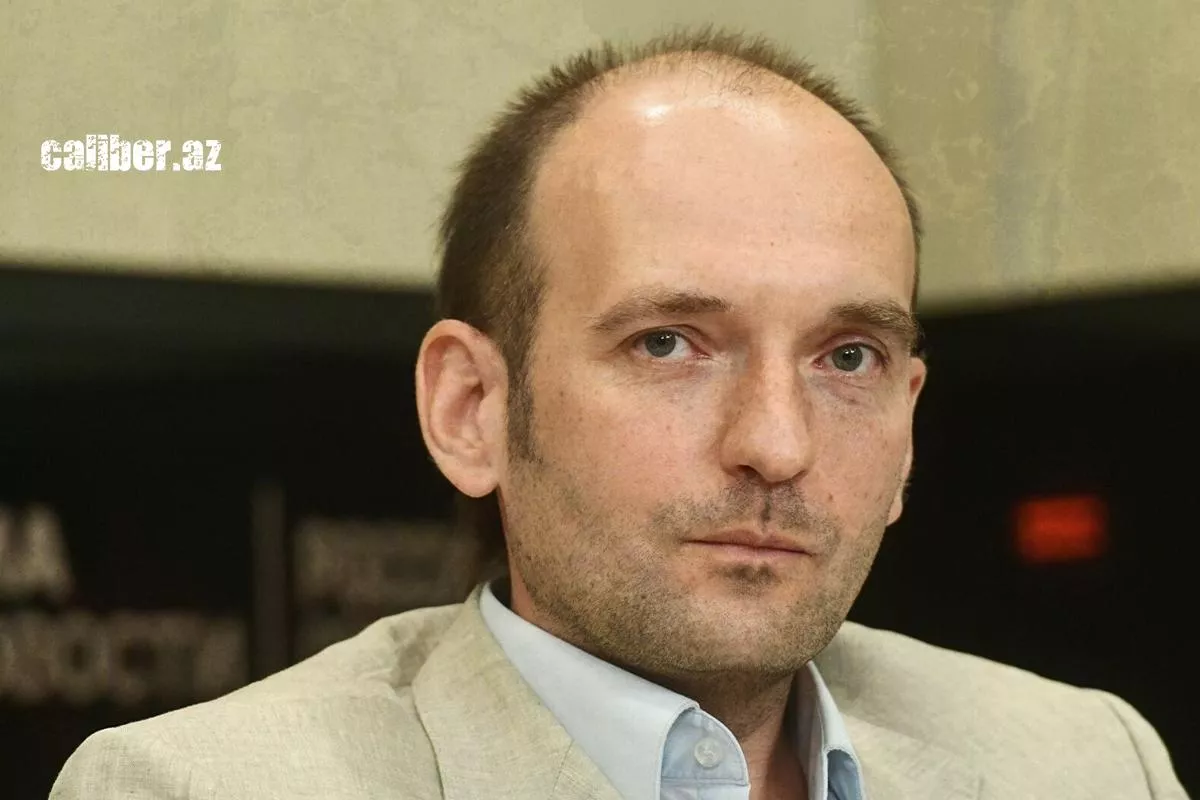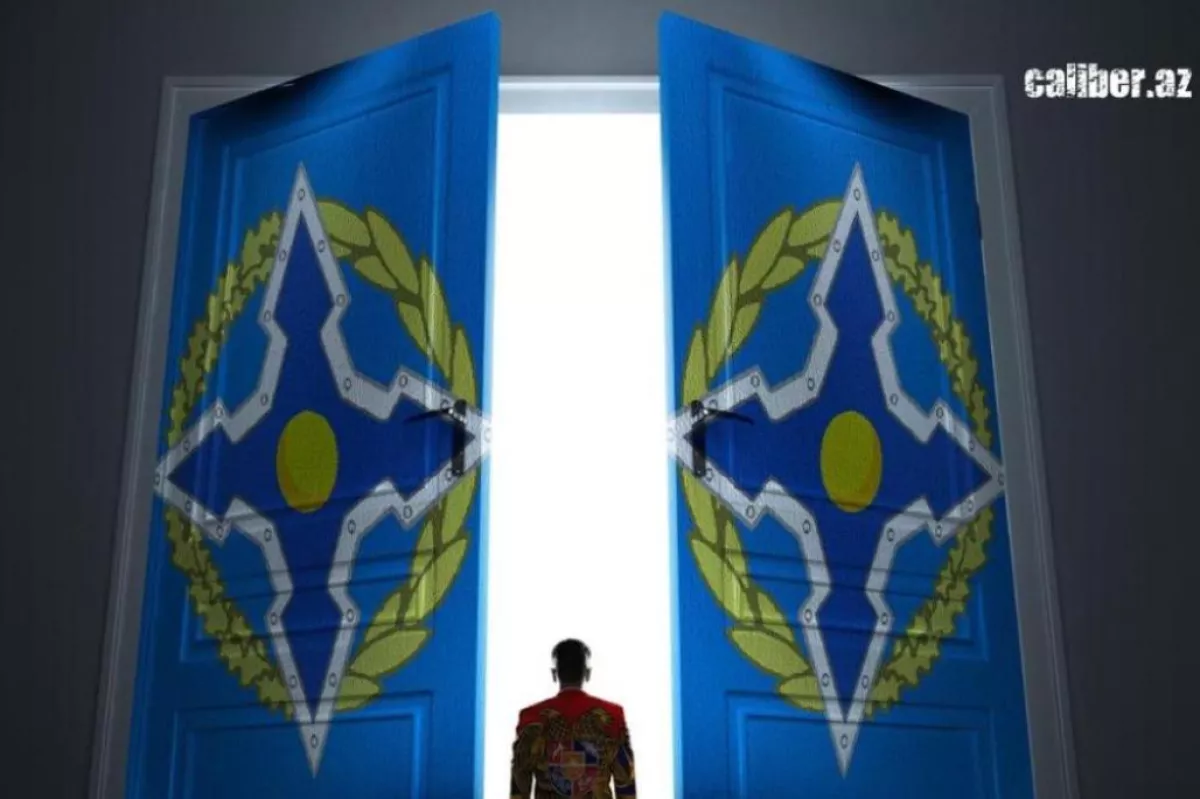Armenia using CSTO for political bargaining with Russia Experts’ opinions on Caliber.Az
Aide to the Russian president Yuri Ushakov has stated that there is an opinion that Russia is trying to persuade Armenia to continue its cooperation with the Collective Security Treaty Organisation (CSTO).
Moscow respects Armenia's independent path. At the same time, he reminded that Armenia remains a member of the CSTO, and therefore it may participate in all events.
"Armenia may return to work within the CSTO, and we hope that, sooner or later, Armenian representatives will resume their cooperation within this organisation," he stated.
Ushakov assured that Russia does not question Armenia's right to independently determine its course. He clarified that Armenia remains a full member of the CSTO, retaining all corresponding rights and obligations.
"The CSTO should not have fought for Yerevan in Karabakh, as there was no external aggression against Armenia," Russian President Vladimir Putin said in Astana on November 28.
The Russian president also suggested that Armenia may return to full participation in the CSTO.
He noted that Armenia has not yet announced its withdrawal from the organisation and continues supporting all summit documents of the CSTO.
"I believe that the current situation between Armenia and the CSTO is most likely dictated by Armenia's domestic political situation," he said.
It has been over a year since Armenia openly announced the suspension of its membership in this military bloc. However, it seems that Moscow would prefer not to see Armenia's permanent withdrawal from the organisation. What could be the reasons behind this? Are there concerns about the future integrity of the CSTO if Yerevan were to leave?
Representatives from CSTO member states answered the questions by Caliber.Az.

Kazakh political analyst Kazbek Beysebayev notes that the CSTO holds geopolitical and geostrategic significance for Moscow.
"Through the CSTO, Russia continues maintaining control over its closest neighbours. For other members, the organisation holds more practical significance. In Central Asia, there is a threat of terrorism. Therefore, for Kazakhstan, Kyrgyzstan, and Tajikistan, the CSTO serves as a body for combating potential terrorism," the expert said.
Beysebayev noted that as for Armenia, it borders countries with which, to put it mildly, it does not have very good relations.
"In terms of religion, almost all of Armenia's neighbours are also different. The only country that can serve as a guarantor for Armenia [this has happened in its history] is Russia. Therefore, Yerevan may announce its withdrawal from the CSTO, but in my opinion, this is just a loud statement about leaving the organisation. When it comes to security, Europe, France, or the US are too far away from Armenia, and it will be difficult for them to provide quick assistance. Moreover, they have complicated relations with some of Armenia's neighbours," he said.
"I believe that Yerevan fully understands all these factors, and any talks about leaving the CSTO will remain just statements," the political analyst said.

Russian political analyst and expert at the Caspian Institute of Strategic Studies Alexander Karavaev noted that since around the mid-2010s, the CSTO has essentially been splitting into three segments.
"We could even say there are three operational commands, each focused on its own security issues. This doesn’t mean that the CSTO is falling apart from within; rather, it’s a very specific organisation, not a standard one in terms of the rigid military blocs of the 20th century, with NATO being the successor. NATO, for instance, has a more or less strict discipline, clear subordination, and numerous civil and military programmes. It also serves as the benchmark for the collective security system of the developed Western world," the expert said.
He said that the CSTO is a specific organisation in this regard, and it is by no means a successor to the Warsaw Pact.
"It is not an antagonist to NATO. It was created specifically for security issues within the post-Soviet region, and from the very beginning, it was clear that it did not include all the countries of the former Soviet Union. This is the first point," Karavaev said.
“The second point, in essence, is that the CSTO as an organisation does not foresee many areas of development, which have not yet been fully implemented as genuine lines of cooperation. It was essentially designed with future growth in mind and does not imply any strict commitments to mandatory military programmes or collective organisation interaction. In fact, this form of collective control and interaction within the post-Soviet space acts as an addition to the bilateral cooperation between each CSTO member state and Russia,” the expert said.
He said that the CSTO serves as a collective framework built on the system of bilateral interactions among its member states and Russia. This is the essence of the structure. In other words, it is by no means a counterbalance to NATO or a security structure that covers the entire post-Soviet space. It is rather an institutional form. However, as this structure has evolved, we now have three areas, three zones of operational control or operational cooperation, linked to geography and geopolitics.
“These zones do not overlap, and their participants do not always pursue the same objectives. For example, the Western zone of responsibility for the CSTO is essentially a bilateral interaction between Russia and Belarus, which is currently engaged in a hybrid war with the countries of the Eastern NATO bloc. This segment of the CSTO has no impact on the interaction within the Central Asian group of the CSTO, which is focused on other issues. During the CSTO summit in Astana, they signed a programme for the arrangement of the Tajik-Afghan border, which was intended as a long-term project already established in previous years,” the political analyst said.
Karavaev noted that the third segment of the CSTO is related to the South Caucasus — a bilateral interaction between Russia and Armenia concerning a security zone that encompasses the territory of Armenia as a state.
"As for this region, there is a specific set of issues, which has been complicated from the very beginning by the fact that Azerbaijani territory was under Armenian occupation. Azerbaijan, not being a member of the CSTO, is effectively in allied and, let's say, partnership relations with Russia. Since 2022, there has been a legal agreement on allied cooperation," he said.
“A certain paradox was inherent from the very beginning in the sense that Armenia could not rely on Russia for its expansionist plans to control Karabakh, because such obligations never fell within Russia's commitments, in principle. How this was publicly interpreted in Armenia is another matter. Armenian experts and military personnel were fully aware that Russia had no intention of intervening in Azerbaijan's legitimate pursuit of its interests on its constitutional territory,” the expert said.
Karavaev noted that the incorrect interpretation of the CSTO's objectives by Armenia created conditions for the Armenian leadership, represented by the elite that came to power with Armenian Prime Minister Nikol Pashinyan, to use the CSTO framework simply as a political bargaining chip with Russia. This paradox continues developing.
“Yerevan has decided to reassess its view of the CSTO's role in Armenia to use it in political negotiations with Moscow. In other words, they are changing these objectives, while the CSTO itself has no involvement in this shift,” the expert said.

He said that many people are now asking the question: what is the purpose of keeping Armenia in the CSTO at this point?
"If this crisis continues escalating, and the Armenians persist in pushing for their exit and eventually leave, this vacuum will inevitably be filled by other countries. It's clear who they are. Primarily, France, along with an increased presence of the US and various US programmes. This could have a negative impact on the entire security architecture of the South Caucasus. This is a shared problem - not just for Russia, but for Azerbaijan as well," Karavaev said.
"Indirectly, this affects Iran and even Georgia, which is generally aligned with a pro-Western vector while attempting to normalise relations with Russia. This shift in security balances and structure, which could arise if Armenia were to leave the CSTO, would severely disrupt the fragile emerging compromise in the region," the expert said.
"This is why Russian officials and CSTO representatives try to ignore these threats and speculative remarks coming from Armenia, aiming to avoid scandals. There is an expectation that over time, this political trend will shift in the opposite direction. There is a certain logic to this, as sooner or later, the leadership in Armenia will change," he said.
"Therefore, keeping Armenia within the CSTO is quite important in this regard. Of course, political efforts, as well as strong political arguments are required, to demonstrate to Armenia the specific benefits of remaining in the organisation," Karavaev added.








